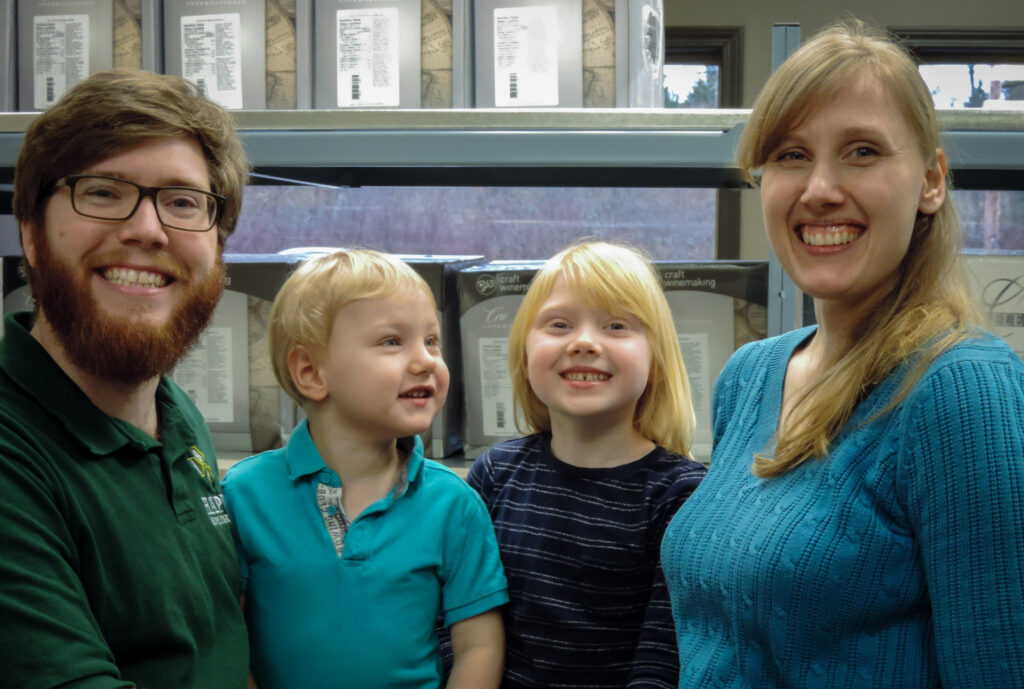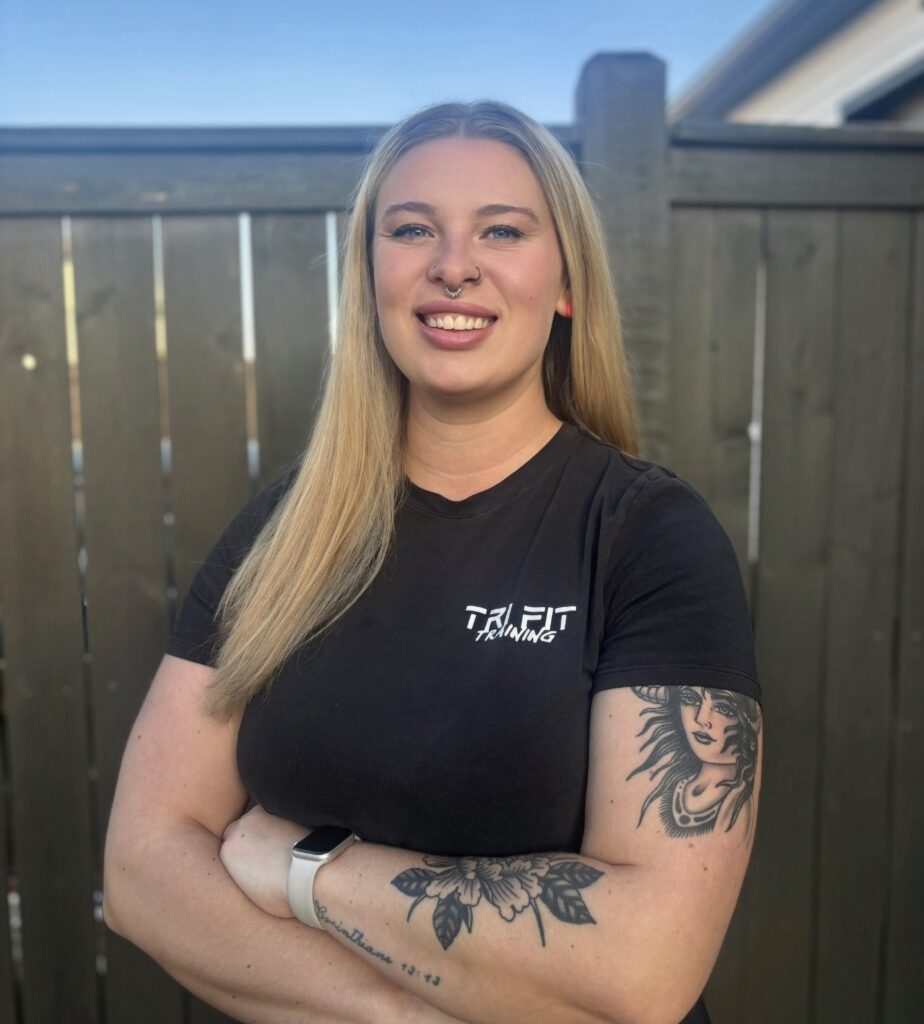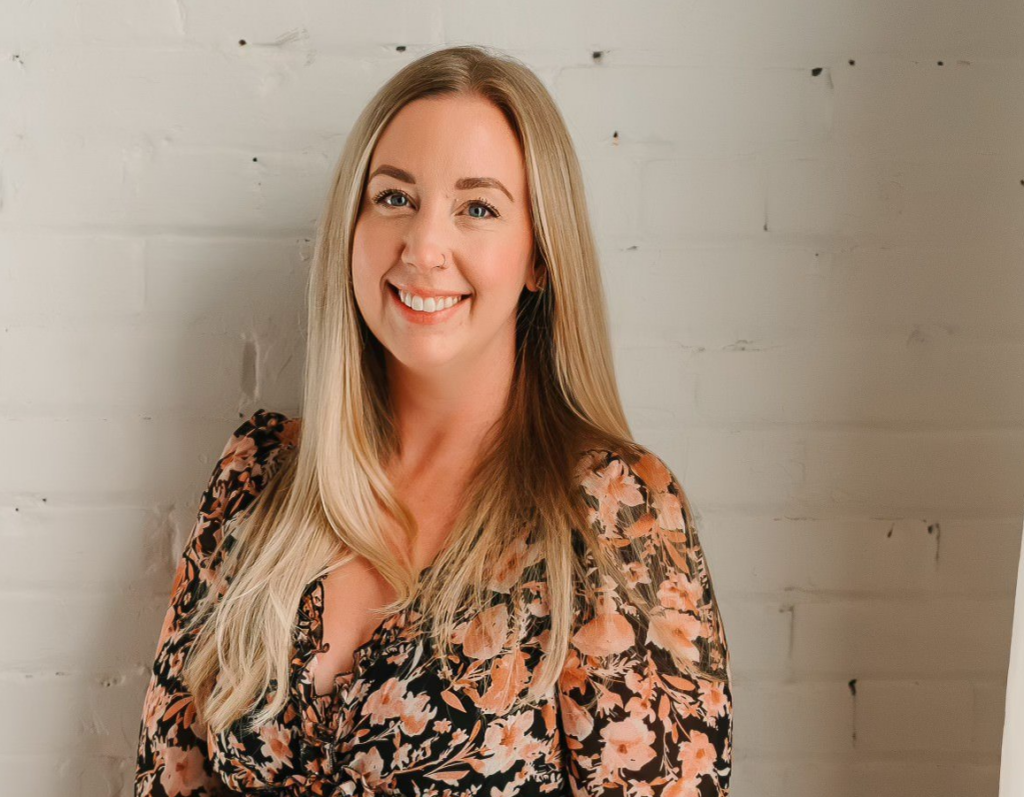
- Futurpreneur(s) and partners
Spotlight on Happy Homebrewer: How to Keep Your Cool (and Your Clients) in a Crisis
Want to make your own wine, beer or cider? The Happy Homebrewer is the place to go in Victoria, British Columbia. The Happy Homebrewer allows customers to make batches from scratch, and even create custom beverages made from their own picked fruit. “A good year for apples is a good year for cider,” Duncan and Laura Blackman, the Owners behind Happy Homebrewer explains.
Duncan Blackman, the operations and client relationship manager at Happy Homebrewer is able to completely customize customer’s batches, allowing everyone to leave with something completely unique to them and their taste. The Happy Homebrewer also offers a full range of equipment and supplies for those customers that want to brew their own batches at home.
The Happy Homebrewer is run by Laura and Duncan Blackman. Duncan started in the fermentation hobby by making mead (honey-based alcoholic beverages) and experimenting with different compositions and flavours. Beer and wine soon followed, and shortly after, Laura and Duncan’s little family moved to a space large enough to support expansion of Duncan’s home equipment. With Duncan’s passion, and Laura’s business degree and entrepreneurship specialization, the pair built a business plan, raised the purchase capital, and took ownership of the Happy Homebrewer, a business that was up for sale in the area in 2012.
But on June 4th, 2015, the business partners never anticipated what was coming next. After closing the store that night, they got a call only an hour later from their security company alerting them about a fire alarm at the store. Within ten minutes, Duncan was back at the store to find the fire department putting out a fire, and smoke pouring out of the building—a nightmare for anyone, but especially two entrepreneurs that had just pursued their dream, and put in hard work to purchase and grow their own business.

The cause of the fire was determined to be faulty wiring in a stereo that was part of the equipment included when they purchased the business. “This electrical failure took out the device itself, as well as all the supplies and stock around it,” they explained. Thankfully, Duncan had closed the doors to the production room containing the stereo before locking up, so the fire wasn’t able to spread, but the flames from the fire broiled the contents of the room at about 425°C. “This evaporated batches in production, released toxic smoke throughout the store and compromised the entirety of our stock, as well as a good portion of the internal structures and fixtures,” Laura described.
No business owner wants to ever be faced with such a devastating catastrophe, and the incident was a complete and unexpected learning curve. “It was a total shift in gears and perspective to have the business literally go up in smoke,” they said. “There is a complete loss of control; you go from making all the decisions—big or little, good or bad—about how the business operates, to making virtually none.” Laura explained that once the insurance claim was opened, their influence was minimal and the only choice they had was how to react to the tiny pieces of information that were made available to them. They were left trying to figure out how to use the tools they had left, which was mainly their network, client lists, industry contacts, records, and research. On top of that, the uncertainty as to how much time they had without a store or income was stressful. “We still feel a bit like we’re on the outside of our own operations, waiting for someone else to tell us what the plan is and when we can reach the next milestone,” Laura said.
Almost a year after the fire, Duncan and Laura have learned some valuable business lessons that can help you keep your cool – and your clients – in a crisis:
1) Stay in touch with your client base as much as possible
Being transparent about what you are going through and communicate as soon as you know anything about the progress or timelines to keep everyone in the loop on your story. This will hopefully leave your clients feel like they are still top of mind, even in a crisis.
2) Be realistic about the return to operations
Even if you have experts telling you otherwise, take the worst case scenario and add 25% to time and cost. Be prepared for a process that might take longer than anticipated. For example, when applying for insurance, you will need to find every clause that is helpful for your situation and apply for each section in your policy.
3) Be optimistic
As long as your insurance is adequate, you will make it back eventually. In the meantime, reach out to your community. Draw on that energy and momentum to stay focused on the positive aspects of rebuilding and providing service to the community again.
4) Remember, not having a store doesn’t mean not having a business
Keep up to date on trends in the industry, and look for opportunities to improve your operations when it’s all coming back together again. It’s a total reset, so you can consider all the things you didn’t have the time or capacity to build into your business before.

Through this long and hard process, Laura and Duncan never lost sight of their customers. One of the big things they did from the start was create a customer survey to check in on how their customers thought they were doing, and to give them insights on improving their communications and offerings. The pair also started posting regular updates on reconstruction progress, and made additional effort to be transparent, while reassuring everyone who lost batches that their product would be replaced. “Duncan has stayed active on social media throughout the store closure, providing advice and support to the brewing and vinting communities, even while unable to provide materials,” Laura explained.
Laura and Duncan have been through a lot with their business, but their passion and community support have gotten them through it. The pair had a soft reopening on March 1st, 2016, and a formal ribbon cutting ceremony on April 2nd, 2016. Although the business owners are feeling the exhaustion of starting a business all over again (even after four years into successful operation), they didn’t want their customers to wait any longer. “We wouldn’t be here without our customers, friends, family and community. We owe a lot to them and want to make sure our business sticks around for a long time to help invest in our community the same way they have invested in us.”
You can follow the journey of Happy Homebrewer on Facebook and Twitter.
Written By: Lauren Marinigh, Social Media & Content Creation Coordinator, Futurpreneur Canada





